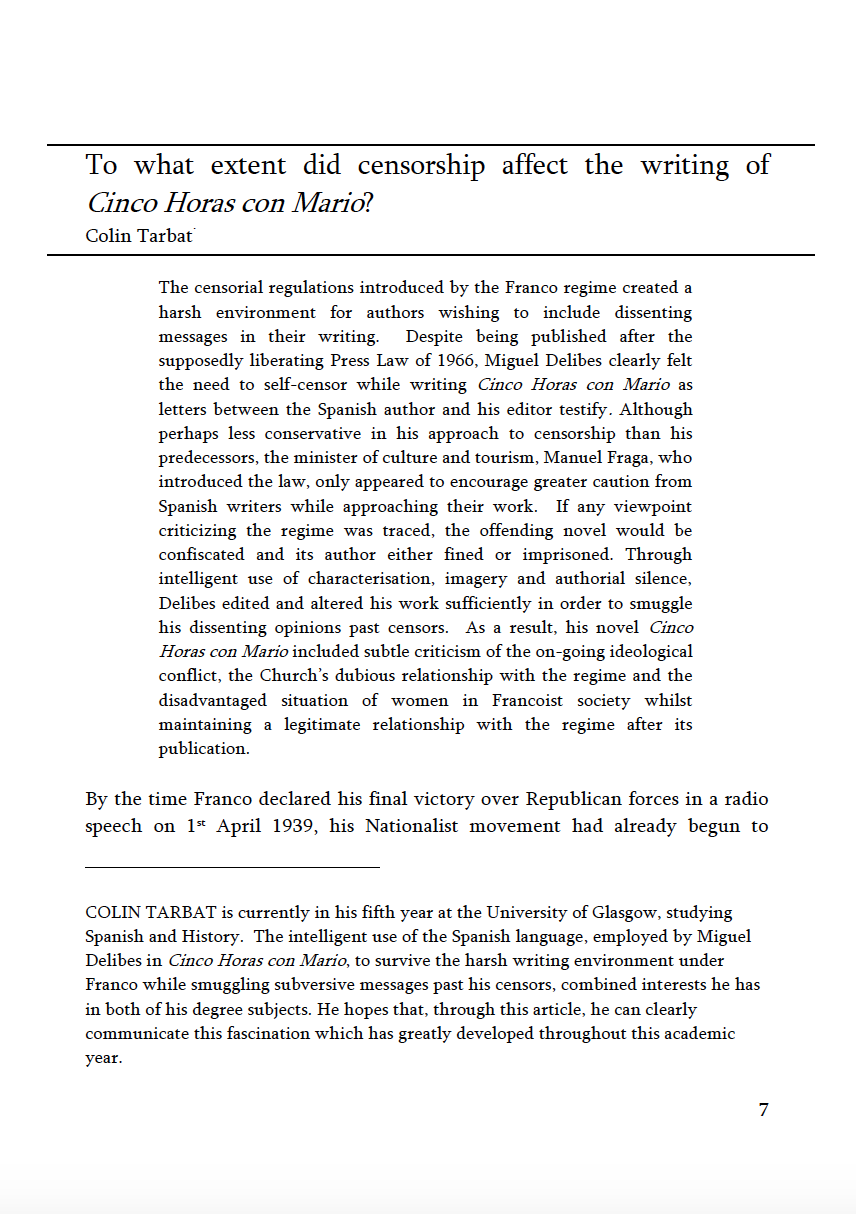To what extent did censorship affect the writing of Cinco Horas con Mario?
DOI:
https://doi.org/10.36399/GroundingsUG.5.235Keywords:
Cinco Horas con Mario, Franco, Miguel Delibes, Press Law, Censorship, Self-censorshipAbstract
The censorial regulations introduced by the Franco regime created a harsh environment for authors wishing to include dissenting messages in their writing. Despite being published after the supposedly liberating Press Law of 1966, Miguel Delibes clearly felt the need to self-censor while writing Cinco Horas con Mario as letters between the Spanish author and his editor testify. Although perhaps less conservative in his approach to censorship than his predecessors, the minister of culture and tourism, Manuel Fraga, who introduced the law, only appeared to encourage greater caution from Spanish writers while approaching their work. If any viewpoint criticizing the regime was traced, the offending novel would be confiscated and its author either fined or imprisoned. Through intelligent use of characterisation, imagery and authorial silence, Delibes edited and altered his work sufficiently in order to smuggle his dissenting opinions past censors. As a result, his novel Cinco Horas con Mario included subtle criticism of the on-going ideological conflict, the Church’s dubious relationship with the regime and the disadvantaged situation of women in Francoist society whilst maintaining a legitimate relationship with the regime after its publication.

Downloads
Published
Issue
Section
License
Copyright (c) 2012 Colin Tarbat

This work is licensed under a Creative Commons Attribution 4.0 International License.
The CC BY 4.0 license is a Creative Commons license. This is a non-copyleft free license that is good for art and entertainment works, and educational works. It is compatible with all versions of the GNU GPL; however, like all CC licenses, it should not be used on software. People are free to: Share — copy and redistribute the material in any medium or format; Adapt — remix, transform, and build upon the material for any purpose, even commercially. The licensor cannot revoke these freedoms as long as you follow the license terms. But they must conform to the following terms: Attribution — You must give appropriate credit, provide a link to the license, and indicate if changes were made. You may do so in any reasonable manner, but not in any way that suggests the licensor endorses you or your use. No additional restrictions — You may not apply legal terms or technological measures that legally restrict others from doing anything the license permits.
Please check individual article PDF copies to see if any additional restrictions apply.







